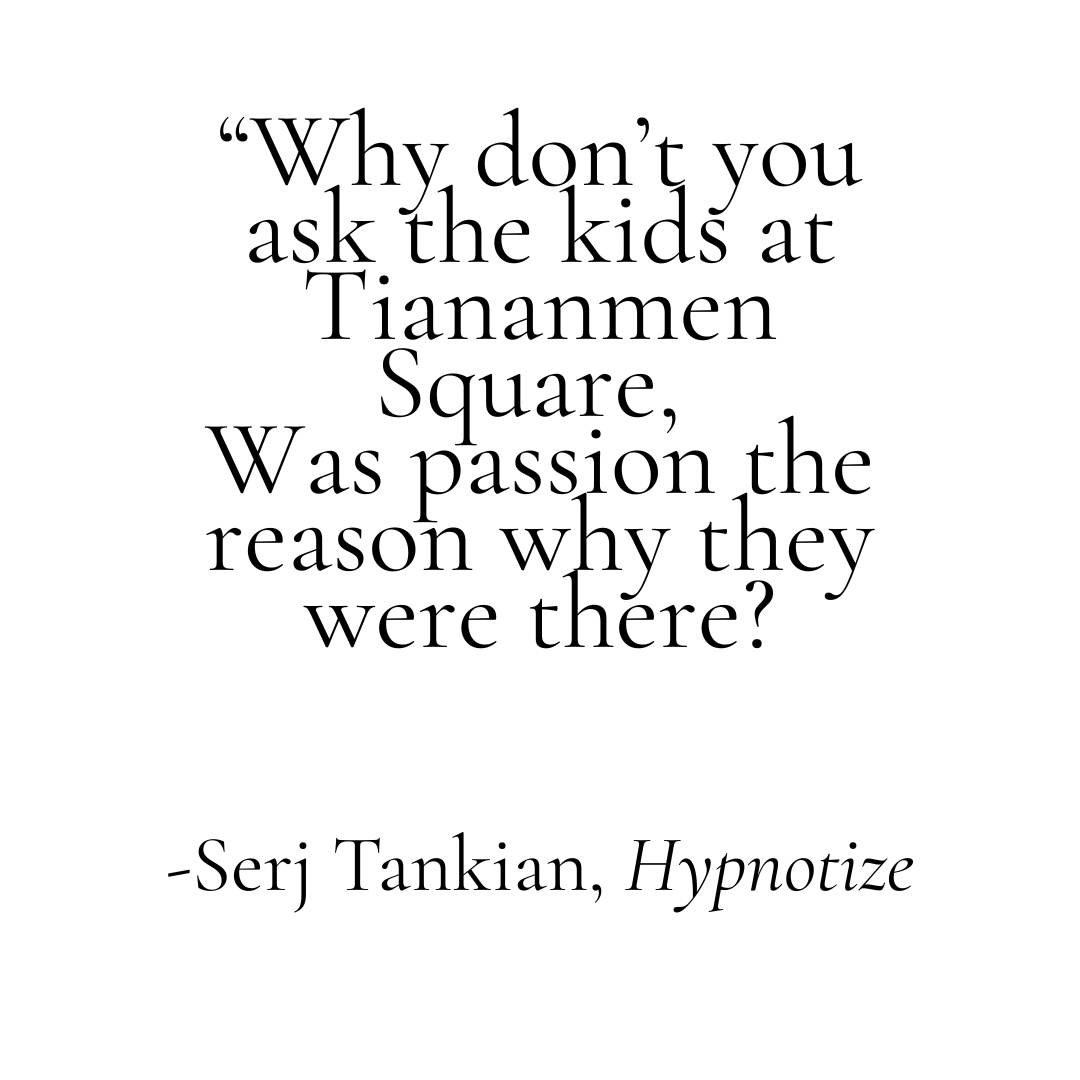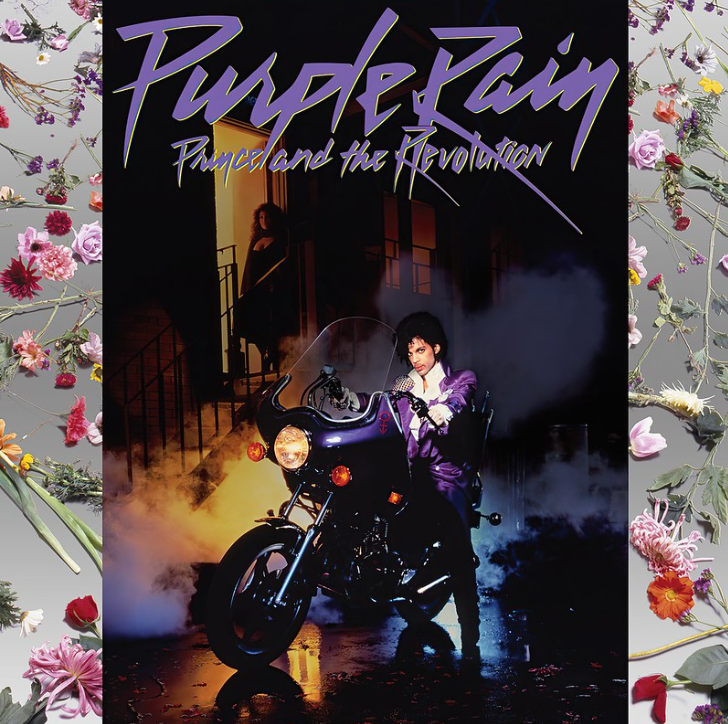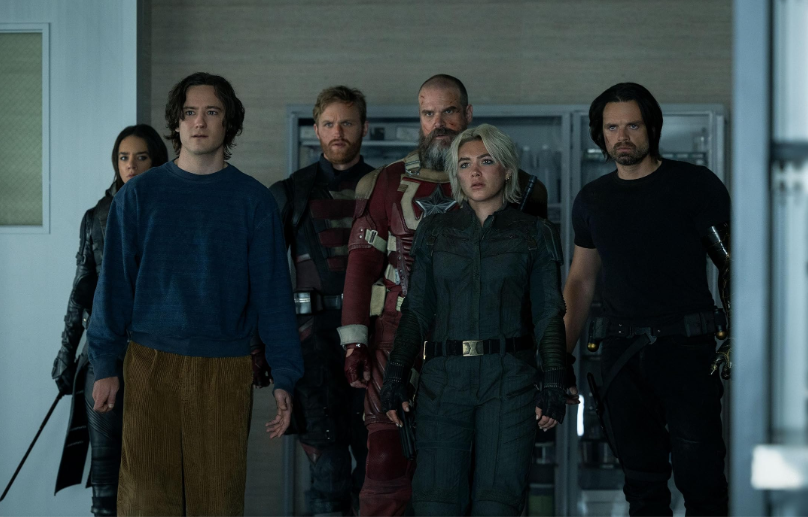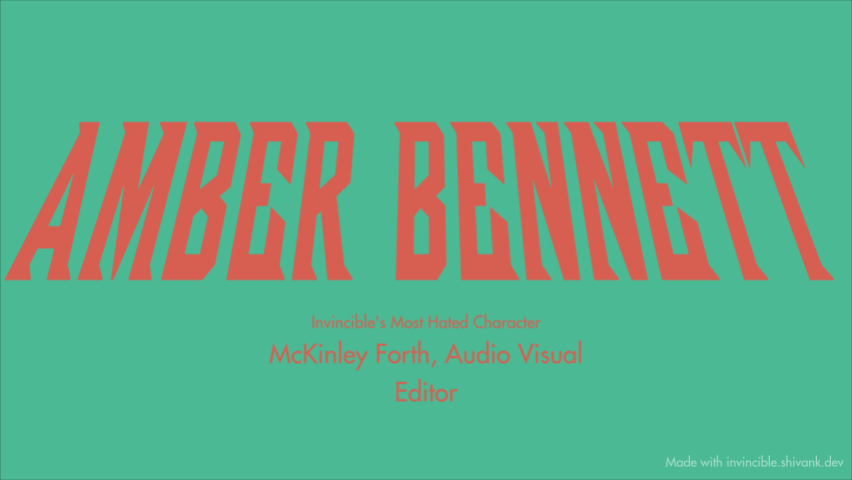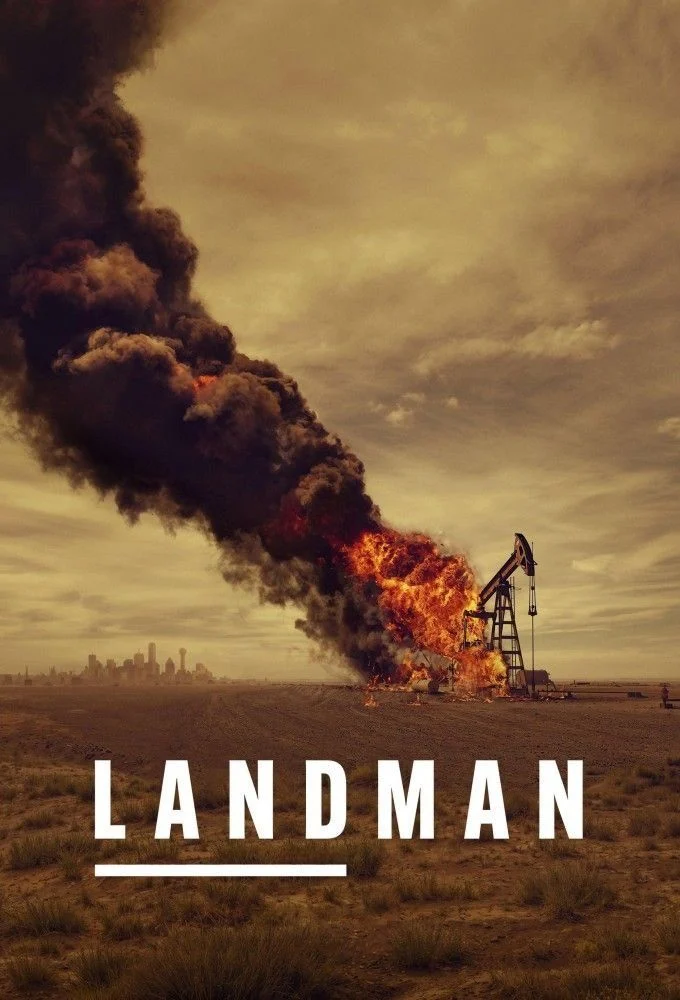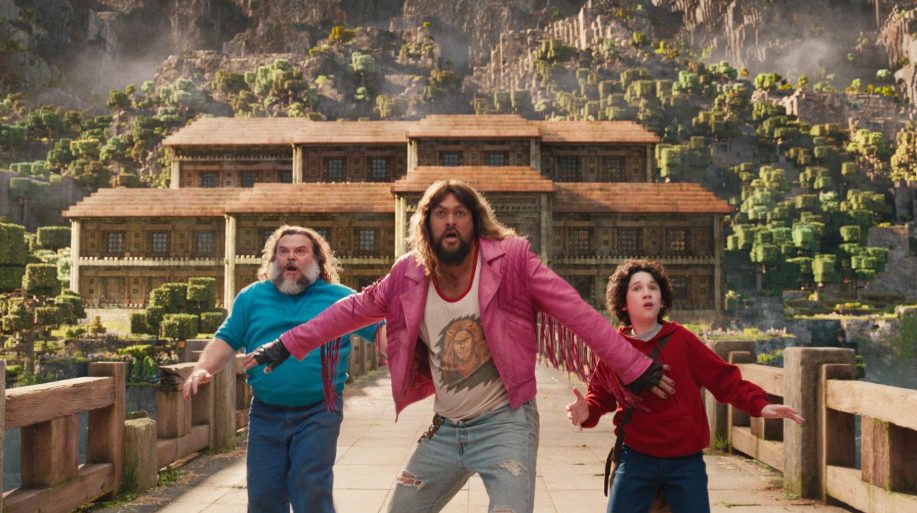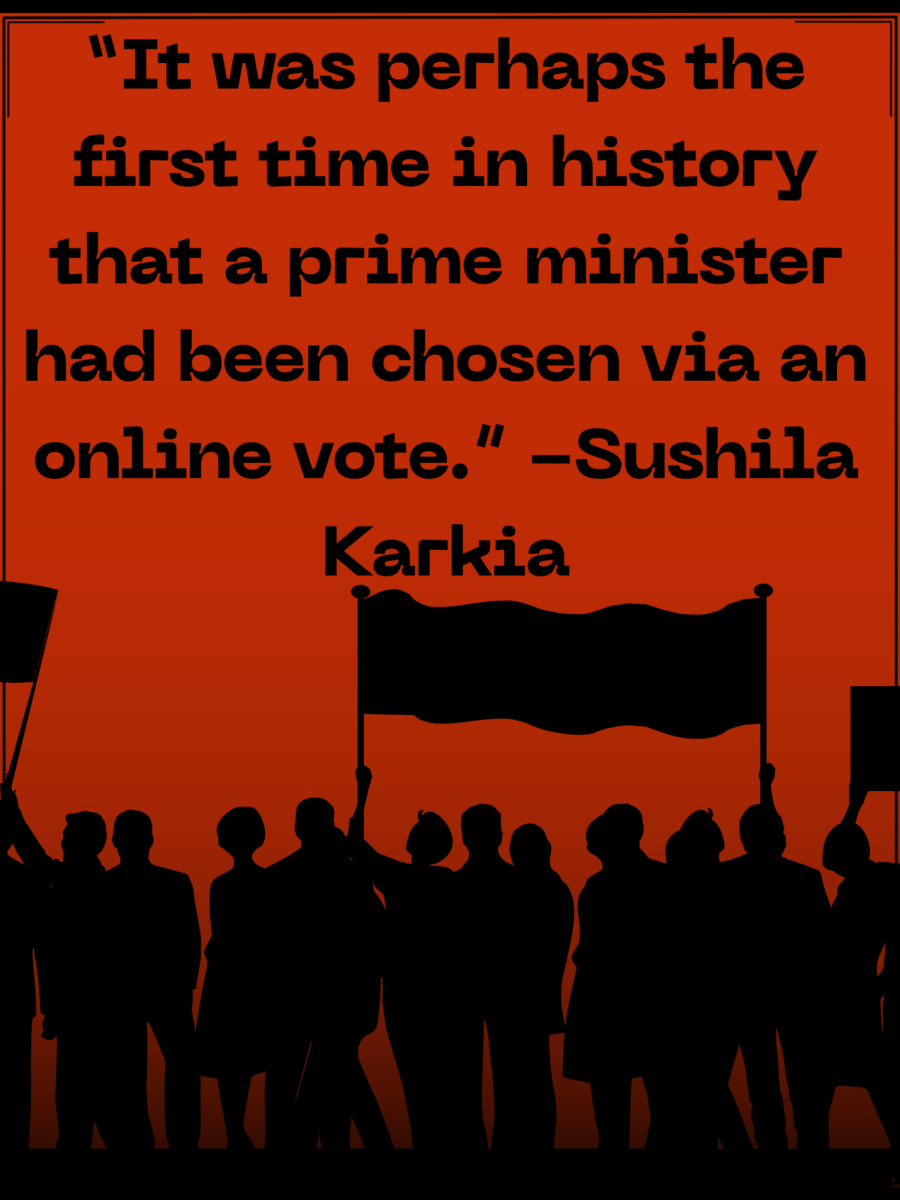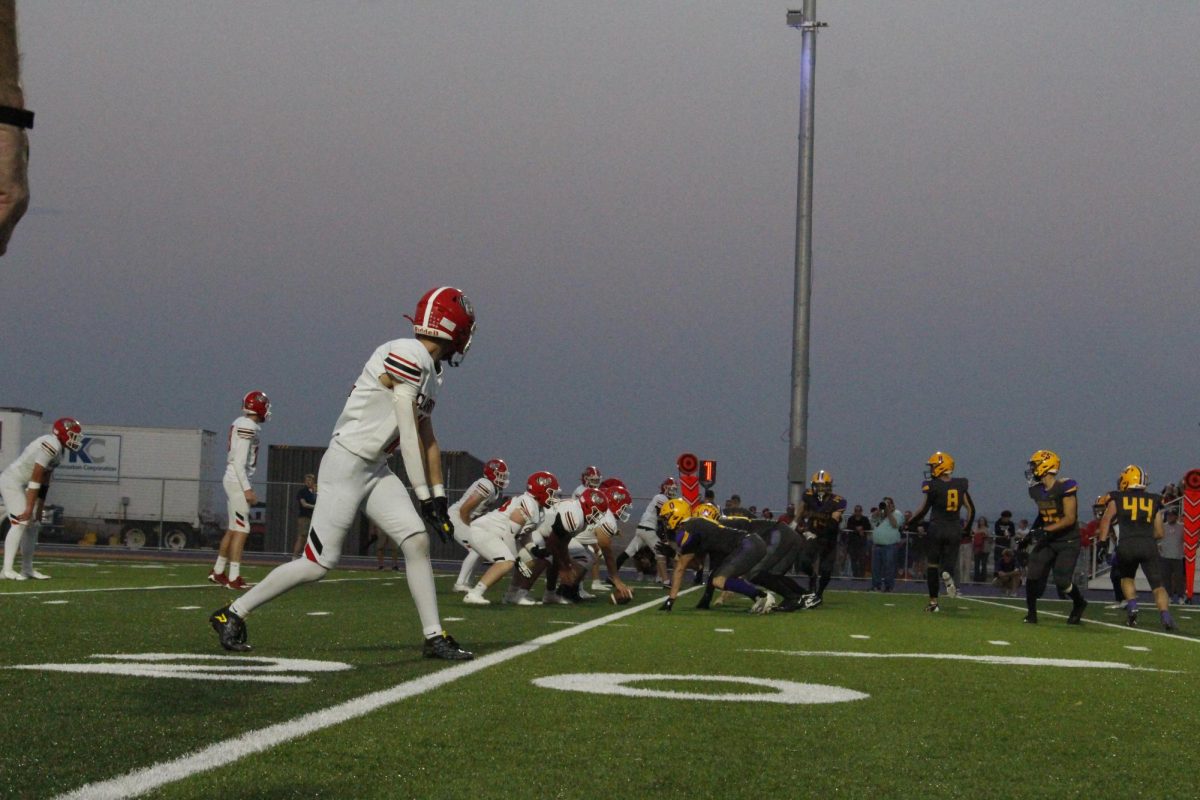Twenty years ago, Armenian-American rock band System of a Down released two albums back-to-back, Mezmerize and Hypnotize, that shook the foundations of mainstream rock. With roots in Armenian folk-turned-metal, System of a Down redefined their label with this two-part album in 2005.
The first album, Mezmerize, was released in May 2005. The album possessed the same chaotic energy as former albums produced by the band, such as Toxicity. The album features beautiful harmonies between lead singer Serj Tankian and guitarist Daron Malakian, intricate drum patterns by John Doloyman, and simplistic basslines encapsulating the essence of the songs performed by Shavo Odadjian. The songs tell stories about the Armenian genocide, the horrors of mainstream media, anti-war anthems, and the downfalls of fame.
“Soldier Side” begins the album with a single guitar and two voices, providing a short musical memoir about the struggles of soldiers in war. Because the track is so short, it holds no musical weight in the album. However, the lyrics are hard-hitting and frame a central theme throughout both albums about the true implications of war without the shadow of propaganda overcasting them.
For example, “B.Y.O.B” — short for “Bring Your Own Bombs” — was written in response to the Iraq war, which all members of System of a Down openly opposed. At the beginning of the track, Malakian’s voice pierces through the symphony of blast-beat drums and layered electric guitars, screaming, “Why do they always send the poor?” The song compares the discrepancies between the status and wealth of soldiers and military officials, as the phrase “Why don’t presidents fight the war?” repeats as the song fades out.
Cultural Daily noted in a review in 2016 that the song uses imagery and allusions to emphasize the “hypnotization” that the American government uses to hide the tragedies of war. It also details something known as the “poverty draft”.
“Although there is not a military draft, there is, in effect, a poverty draft which every year forces tens of thousands of Americans to enlist, receiving some economic relief from poverty in exchange for [going to war],” the Boston Review reads.
Primarily, the song focuses on how poor people are the primary targets of military propaganda.
In the article for Cultural Daily, Mike Sorkensen breaks down the line: “You depend on our protection/Yet you feed us lies from the tablecloth.” He presents the line in two distinct parts; the first is the expectation of citizens to be fully willing to protect their country, and, in doing so, to die for it. The second is that the ordinary ground government officials’ claim to have with citizens is a facade to encourage them to conform to toxic patriotism. The musical component of the piece is simple but impactful, as the lead guitar follows the notes of the lead vocals. The drums contribute to an odd time signature, and the combination of layered guitars contributes to a surrounding effect. However, the music tends to be repetitive, mainly switching between two progressions.
Songs on the Mezmerize album do not all fall into the anti-war and propaganda category. Some songs detail the struggles accompanying fame and the toxicity of Hollywood as a whole. For example, the album’s 10th track, “Old School Hollywood,” details Malakian’s experience meeting some Hollywood stars- Frankie Avalon, Tony Danza, and Jack Gilardi- at a baseball game.
This song has an unusual electric approach to the track, as the backup vocals are digitized voices singing, “Old school Hollywood/Washed up Hollywood.” Here, Marion criticizes the arrogant energy surrounding the stars at the game, which he neither anticipated nor appreciated. The music diverges from System’s typical genre but does not detract from its overall quality in the album. While the song seems slightly out of place in this particular album, it is a fun aside in an album packed to the brim with heavy metal.
The band doubles down on its Hollywood critique through the next track on the album, “Lost in Hollywood.” Lyrics like “Phony people come to pray” and “You should’ve never come to Hollywood/You should’ve never trusted Hollywood” emphasize the band’s perceptions of what fame genuinely entails for those who ‘make’ it.
The band addresses other complex topics like drug addiction, toxic masculinity, and patriarchy through both direct references and nuanced metaphors. “Cigaro” addresses the pointless competition between men perpetuated by society about arbitrary things, especially in politics — in this instance, “size” is the metaphor.
Internet sleuths have dissected the song on websites like Songfacts. Here, an anonymous author claims the song “describes a typical world leader” and how their competition with other world leaders has focused too heavily on individual power rather than worldly unity. Others claim the song is a jab at Bill Clinton’s affair with Monica Lewinsky and references lewd acts that came to light following the affair going public. No matter the song’s true meaning, the explicit lyrics take a clear oppositional stance on whatever the band is commenting on.
“Revenga” details a man’s desire to exact revenge on his partner who had an abortion, while “Violent Pornography” seems to describe the degradation of intelligence and critical thought as media and television become more prevalent throughout the world. “This Cocaine Makes Me Feel Like I’m On This Song” is an ode to the dysphoria and onslaught of confusion brought on by drug addiction.
The second album, Hypnotize, was released in November 2005. Scene Point Blank’s “Neil F” described the album as more “harmonious” than its counterpart. In an interview with Loudwire preceding the album, Malakian said, “It’s melodic in some ways, and it’s heavy, but a lot of stuff happens between the heavy.”
The album begins with “Attack,” a choppy, quick-paced track that features Tankian and Malakian on vocals. The bassline is one note repeating for the duration of the introduction, and later follows the chords of the lead guitar. In contrast, the drums interestingly follow the patterns of the vocals compared to the other instruments. The song itself tells the story of an uprising against the plagues of society.
For example, the lines, “All the years of propaganda/We shall attack” that end the song’s chorus can directly allude to these sentiments. The lines, “Holding this in mind/If we fall, we all fall/And we fall alone,” could be construed as a jab at the United States’ ‘all for one and one for all’ mindset regarding war and sacrifice. This is not too far of a stretch, considering these sentiments are shared in the previous album.
The album’s title track, “Hypnotize,” prompts listeners to consider the kind of media they’re consuming and how it could lead to misconceptions about the real threats being posed to society. The song begins with the hard-hitting lyrics, “Why don’t you ask the kids at Tiananmen Square/Was passion the reason they were there?” A review by an unnamed author for Beach Boy Music Review notes that the song “paints a picture of how governments use propaganda to sway public opinion and gaslight them into what they want them to think.”
The history of Tiananmen Square in this context is essential. As the Office of the Historian described on the Department of State’s official website, Tiananmen Square was the site of a three-month protest in China. Citizens demanded political and economic reform from their government following the death of liberal Communist leader Hu Yaobang. On June 3 and 4, 1989, martial law was enforced to clear the streets of Beijing forcibly. According to Amnesty International UK’s website, thousands of protesters from all over the country have joined the fight for reform.
The Chinese government has not – and will likely never – released the number of people who died that night because there were simply too many casualties to count. Tanks bulldozed hundreds after soldiers opened fire on the protesters without warning, as reported by Amnesty.
This came after a statement by the Official New China News Agency, a mere month earlier, on May 1. It read, “The troops are not targeted at the students. Under no circumstances will they harm innocent people, let alone young students.”
Nobody knows the death toll of that night. Nobody knows the exact number of students who were captured, tried, and executed for ‘counter-revolutionary crimes’ within the borders of the Beijing district and beyond, either — all that people know is that it happened, according to Amnesty International. Unfortunately, Chinese censorship and laws have effectively banned conversations and protests in remembrance of Tiananmen Square, according to Amnesty International.
This is a crucial event in developing the song “Hypnotize” because it describes the remorseless actions governments took to try and hide – or even justify – horrific events like this. Passion was never the deciding factor of these protests; the hunger for equality drove them.
The song “Vicinity of Obscenity” is the subject of heated discussion, as some regard it as the worst on the album, while others consider it the best. The blog Steve For The Death describes the track as “brutal heavy metal that makes you want to thrash about in a sea of other thrashing bodies.” With what seems like a genre switch in the middle of the song, from seemingly meaningless lyrics like “banana” and “terracotta pie” repeated 56 and 47 times, respectively. Tankian has gone on record with Mythical Kitchen, clarifying that the lyrics don’t symbolize anything.
“Lonely Day” was a commercial hit for the band, which they released on an EP with “Vicinity of Obscenity” and three other EP-exclusive songs in May 2006. It is a slow, generally one-dimensional musical song. The raw voices of Malakian and Tankian are over the top of an alternating eight-note guitar riff until the chorus, which flows seamlessly into a beautiful chorus of guitar, bass, and drums together. Doloyman generally follows the same pattern and time as the lead guitar. During the break between the last bridge and chorus, Malakian performs an incredible guitar riff that captivates listeners. This track charted at No. 10 on Billboard’s Alternative Airplay and Mainstream Rock when it was released.
“Dreaming” is regarded as one of the best tracks on either album, at least by Reddit forums and various blogs. Cory Byrom of Pitchfork commends the track for its “varying rhythms” and the “layers of vocals.” Those features are also commended in the ‘systemofadown’ subreddit. User CasMazz writes, “It’s probably their most complex song and one of their best. The layering with the vocal harmonies is pretty insane.” Malakain and Tankian’s ability to harmonize with each other and their music is revered throughout most reviews. Still, it comes as a displeasure to some who believe that Malakian’s voice detracts from the mood of the songs, as it is pretty high-pitched and could distract listeners from the emotion behind Tankian’s lyrics.
“Kill Rock n’ Roll” is a song that is generally overanalyzed despite Malakian having reported that it is about a rabbit he accidentally ran over, according to an interview with the German magazine Metal Hammer. “Stealing Society” is primarily believed to be about the influence of drugs on American society and how rampant the issue of drug use has become in society’s most idolized characters.
“Tentative” is another anti-war anthem, written from the perspective of innocent civilians being bombed. It is likely a reminder of the Armenian genocide that System of a Down focuses on again in songs like “Holy Mountains” later in the album. The lyrics, “No one, no one is gonna save us now/Not even God,” take the stance that there is no hope for the civilians of a war-torn nation. Not even solace in the belief that a higher power will save them from the inevitable.
“Soldier Side” is a title widely presumed to be a play on the word ‘suicide’ and implies becoming a soldier is entering a contract bound by death. The song continues the “Soldier Side” introduced as the first track on the sister album. “Young men standing on the top of their graves/Wondering when Jesus comes, are they gonna be saved?” are hard-hitting words. They leave the audience wondering how the embodiment of love and light can accept a soldier if they have not led that life by example.
The song title, “U-FIG” is presumed to stand for “You Flag-waving Ignorant Geeks,” according to Genius. The song describes the propaganda tactics governments use to lure people into war. System of a Down’s Fandom Wikipedia reads, “‘Melt in the sun’ is when governments and media tell people to die for them. ‘Join the cause’ is the government telling people to join the war.
Overall, these albums have proven outstanding in craftsmanship. The songs all fit together well throughout both albums, weaving an intricate story about how Hollywood, Armenian genocide, and propaganda all blend,
The only noticeable drawback of the albums corresponds with the previously stated concerns: Tankian’s voice is almost drowned out by Malakian’s.
For all of this, these sister albums earn a 5/5 from The Bengal’s Purr, even 20 years after their release.

